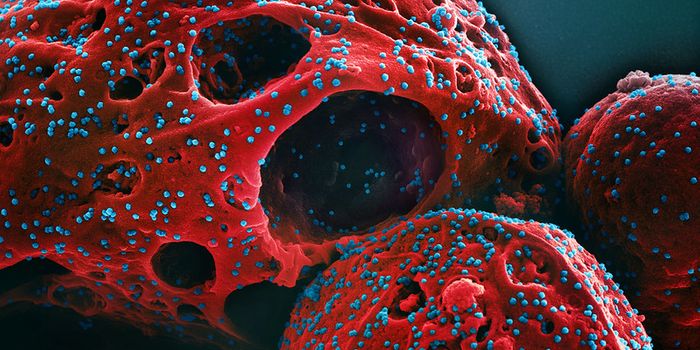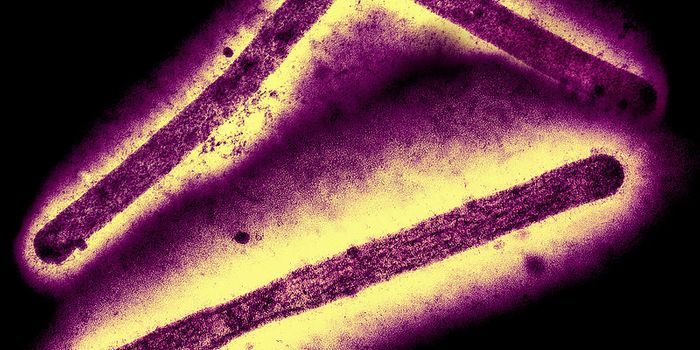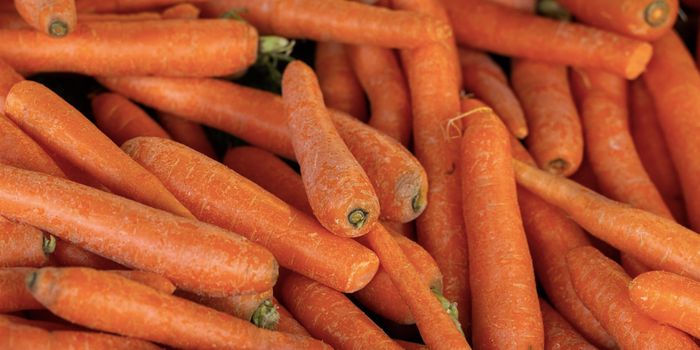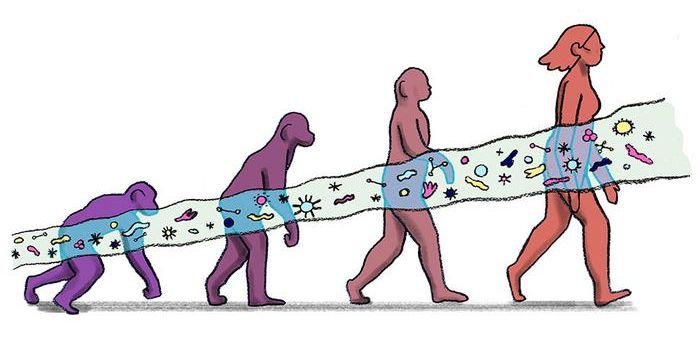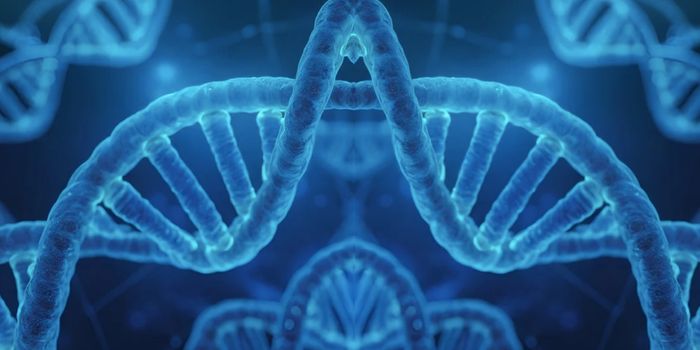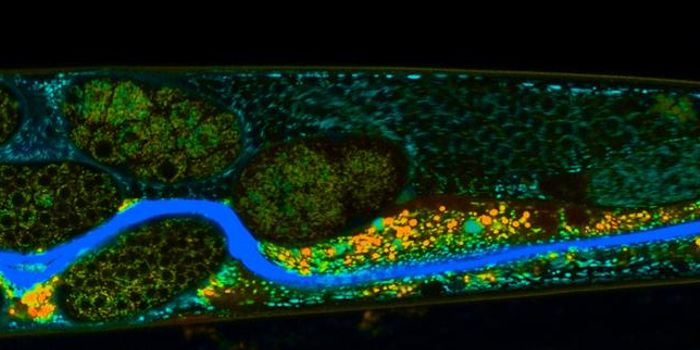A Virus Can Disrupt a Carb-Consuming Gut Microbe
Not all viruses affect animal cells; some viruses can infect bacteria. Humans are known to carry vast numbers of microorganisms in their digestive tract, including both bacteria and viruses, creating a gut microbiome. The microorganisms there help humans digest food and absorb nutrients. Researchers are learning more about how the viruses that infect bacteria, called bacteriophages, can alter the composition of the gut microbiome and affect the bacteria in the community.
Some bacteria in the gut microbiome, including some in the genus Bacteroides, aid in the digestion of complex carbohydrates. It's been estimated that up to 60 percent of the gut microbiome in one individual is composed of Bacteroides, and these microbes are crucial for supplying us with the energy we need to function. Scientists at the University of California Riverside have now identified a group of viruses that attack these microbes. Their findings have been published in Cell Reports and they expand what little we know about the viruses that infect Bacteroides.
"This is largely unexplored territory," said the research leader Patrick Degnan, an assistant professor of microbiology and plant pathology.
The researchers searched through bacterial genomes looking for viruses hidden there, waiting to replicate. The genome of Bacteroides vulgatus was found to contain DNA that belongs to a virus they called BV01. Next, they had to determine whether the virus could escape or reinfect the host. The researchers found that conditions in the gut may act to stimulate the activity of BV01.
"We tried every trick we could think of. Nothing in the laboratory worked until we worked with a germ-free mouse model," Degnan said. "Then, the virus jumped."
When the virus infects a Bacteroides cell, the scientists determined that it interferes with the function of that cell. "Over 100 genes change how they get expressed after infection," Degnan said.
Two of these altered genes were of particular interest; the researchers knew they play a role in the deactivation of bile acids, which can destroy microorganisms.
"This virus can go in and change the metabolism of these bacteria in human guts that are so key for our own metabolism," Degnan suggested.
The researchers don't know how extensive BV01 infection might be but hope to conduct future work to understand more about how diet impacts BV01 and other, similar viruses. Some foods can cause the body to produce more bile.
"It's been sitting in plain sight, but no one has characterized this important group of viruses that affect what's in our guts until now," Degnan said.
Sources: AAAS/Eurekalert! via University of California - Riverside, Cell Reports


